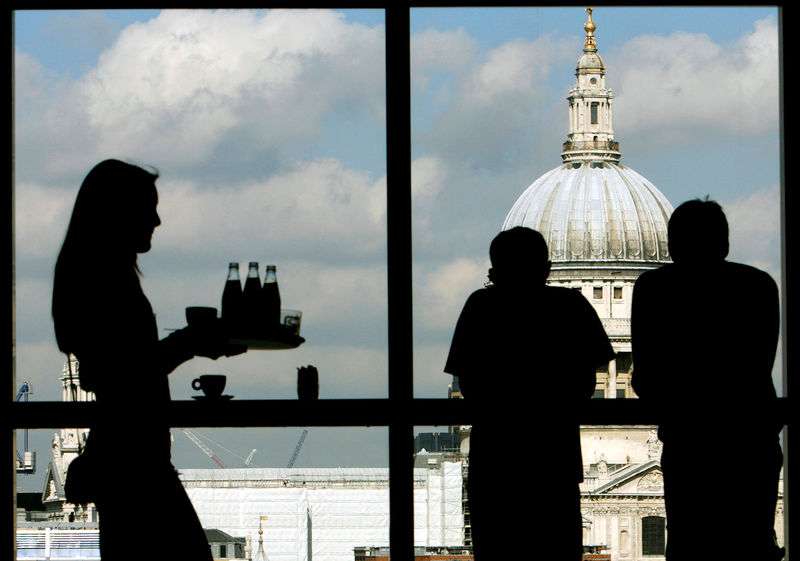Investing.com’s stocks of the week
(Bloomberg) --
The U.K. economy failed to grow in January, adding to the case for the Bank of England’s emergency rate cut Wednesday.
The figures suggest the pickup seen after Boris Johnson’s election win proved short-lived, with momentum waning even before fears about the coronavirus took hold in February.
Gross domestic product was unchanged from December, when it grew 0.3%, the Office for National Statistics said. A rise of 0.2% had been forecast. The economy also stagnated over the latest three months.
The report comes shortly after the BOE slashed its benchmark rate by a half point and announced measures to keep credit flowing.
Policy makers warned that the outbreak will cause the economy to weaken materially. Some forecasters expect output will shrink in the second and third quarters of the year.
The government is preparing to announce its own stimulus measures in the Budget, due at 12.30 p.m. The fiscal watchdog is expected to downgrade its growth forecasts but Bloomberg Economics reckons GDP could contract this year if the virus becomes a pandemic.
Manufacturing and services posted meager growth in January, and construction activity shrank. In the latest three months, services -- the largest part of the economy -- flat-lined with the retail and telecommunication sectors both posting declines.
The economy stagnated on a three-month basis for a third period running, the longest such run since the financial crisis in 2009.
The trade deficit widened to 3.7 billion pounds ($4.7 billion) in January amid a 6% drop in exports. Recent figures have been heavily distorted by flows of non-monetary gold. Excluding precious metals, the deficit grew slightly to 7.8 billion pounds.
